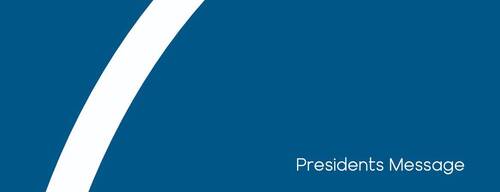Presidents Message: Unauthorised training methods
17. Apr 2024 / Category: News
At the beginning of this week, we held a webinar titled “Protecting horse welfare at home”. In the wake of many recent high-profile cases, alongside the existing findings of the Equine Ethics & Wellbeing Committee, we felt the specific nature of at-home welfare should be discussed with our members, our National Federations, in more detail.
Behind closed doors, away from the watchful eyes of national federations and authorities, methods are being employed to push the boundaries of performance. These concealed practices not only compromise the integrity of the sport but also endanger the welfare of the horses involved.
We conducted an additional survey to explore this issue in more detail, and the response was vast. With the majority of the respondents from Europe, and identifying as a national rider or horse owners, the results clearly show this is not just an FEI matter, a competition matter or otherwise. 90% of respondents said they had witnessed behaviours they believed compromised the horses welfare at home, and almost half of these happened in the last 6months. This is an epidemic across the grassroots and amateur levels that our National Federations need to take action against.
The challenge for National Federations is to find effective methods to manage this. During our webinar, Constanze Winter from Germany outlined the issues in trying cases and applying sanctions. Limited by jurisdiction and authority, the level of evidence and investigation required to successfully prosecute is high. Moreover, when we discuss the issue of training methods, many of these cases are not “severe” enough to warrant the involvement of criminal or other authorities, yet we understand they are inappropriate and cause harm to the animal and should not be employed.
It is time for a paradigm shift; a call to end the impunity of those who tarnish the sport's reputation. While a lot of focus has centred on dressage, we cannot be naive to the threats all our disciplines face, and the potential for poor horsemanship to exist across the breadth of the sports levels too.
You may ask what role we, the EEF take in all this. We are limited with our controls, we do not make rules or have defined relationships with the riders in sport. We have to use our circle of influence, to drive the conversation and engage our member National Federations, and when relevant to bring support forward to the FEI who can make regulations. We believe within this problem, given it far exceeds the international space, our national federations are key.
Beyond the realm of enforcement lies the essence of education and awareness. National federations must spearhead initiatives to educate trainers, riders, officials and stakeholders about the ethical boundaries of training practices. By fostering a culture of transparency and accountability, we can cultivate a community where the horse's welfare reigns supreme.
Sweden shared some of the initiatives they already have in place, education on bits and the effects on the horse's mouth as one area of note. As a body, the EEF will continue to explore these types of projects that are already in place and share them across our member bodies so we can learn from best practices and integrate similar systems in all EEF countries.
The stakes are high, for every horse deserves to be trained with dignity and respect. Their well-being should never be compromised in the pursuit of victory. As custodians of the sport, it is our collective responsibility to uphold the highest standards of integrity and ensure that the spirit of the sport remains untarnished for generations to come.
This need to empower is not just for our federations. Every person involved with horses, riding horses, grooms, yard managers, and riding instructors all need to be empowered to take responsibility for this issue. Our colleague at World Horse Welfare, Roly Owers, spoke at length about this issue. This need for a systemic culture shift, for individuals to become what we call “active bystanders”. If you see behaviours you don’t agree with and you ignore them, you are in effect accepting them. This does not mean to cultivate a movement of aggression and conflict, but to cultivate discussions and conversations within our industry and to say “hey – do we really think this is good for the horse?”. Germany had an example of how as a National Federation you can help facilitate this, through the appointment of dedicated people (a “Tierschutzvertrauensperson”), an animal representative for each district that can be an intermediary for those who wish to raise concerns and intervene.
In the centre of competition, let us not forget the noble essence of the sport, a celebration of harmony, grace, and partnership between horse and rider. Let us rise to the occasion, united in our resolve to safeguard the sanctity of the sport we hold dear. It is time to bring light to the shadows, to empower our federations, and to honour the noble spirit of our sport.
A fair equestrian sport embodies principles of integrity, respect, and welfare for both the horse and the rider. It involves a level playing field which is characterised by honesty and horsemanship, which prioritize the well-being of the horse above all else. The true essence of the sport lies not just in winning, but in the pursuit of excellence with integrity and compassion.



